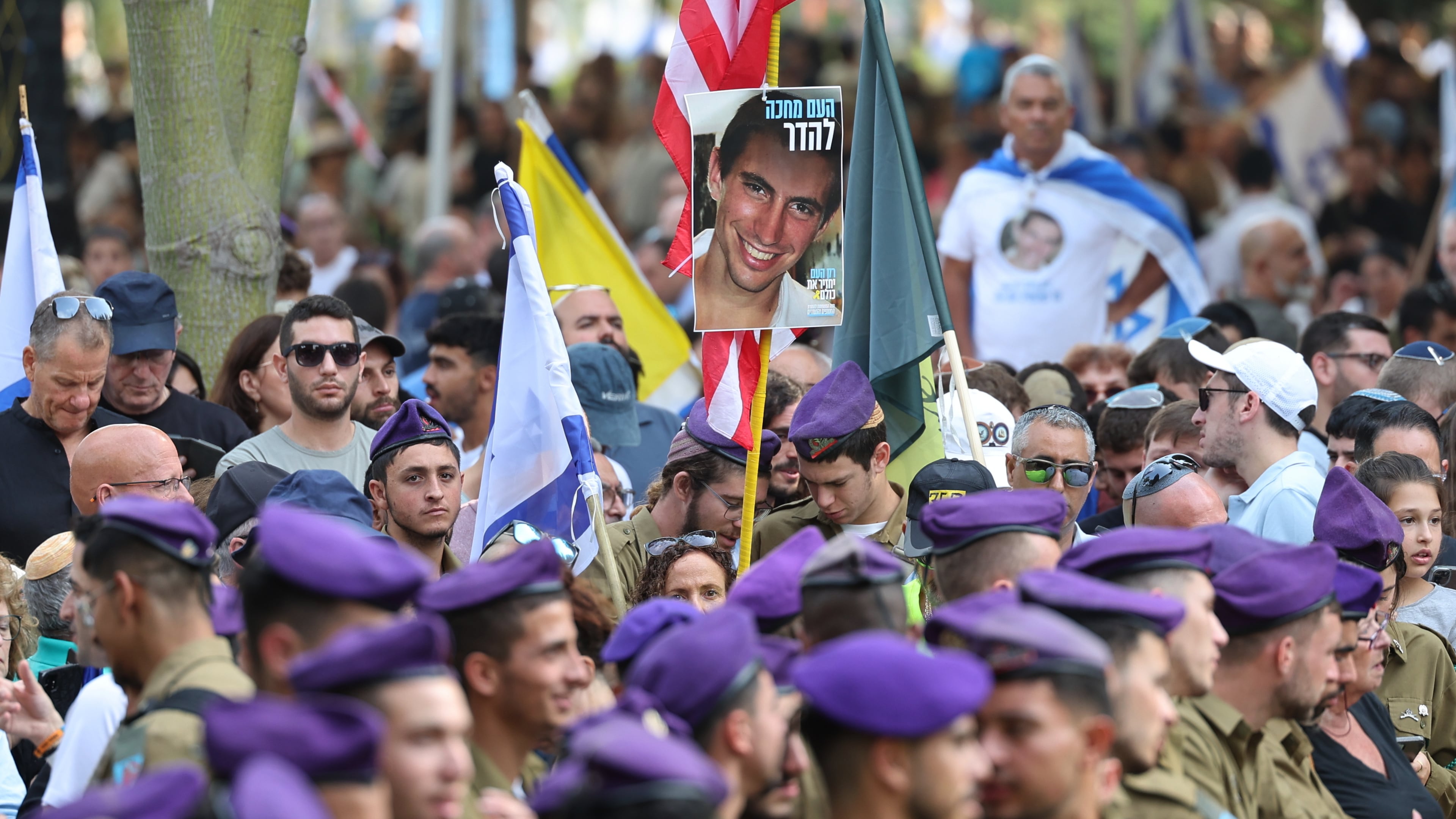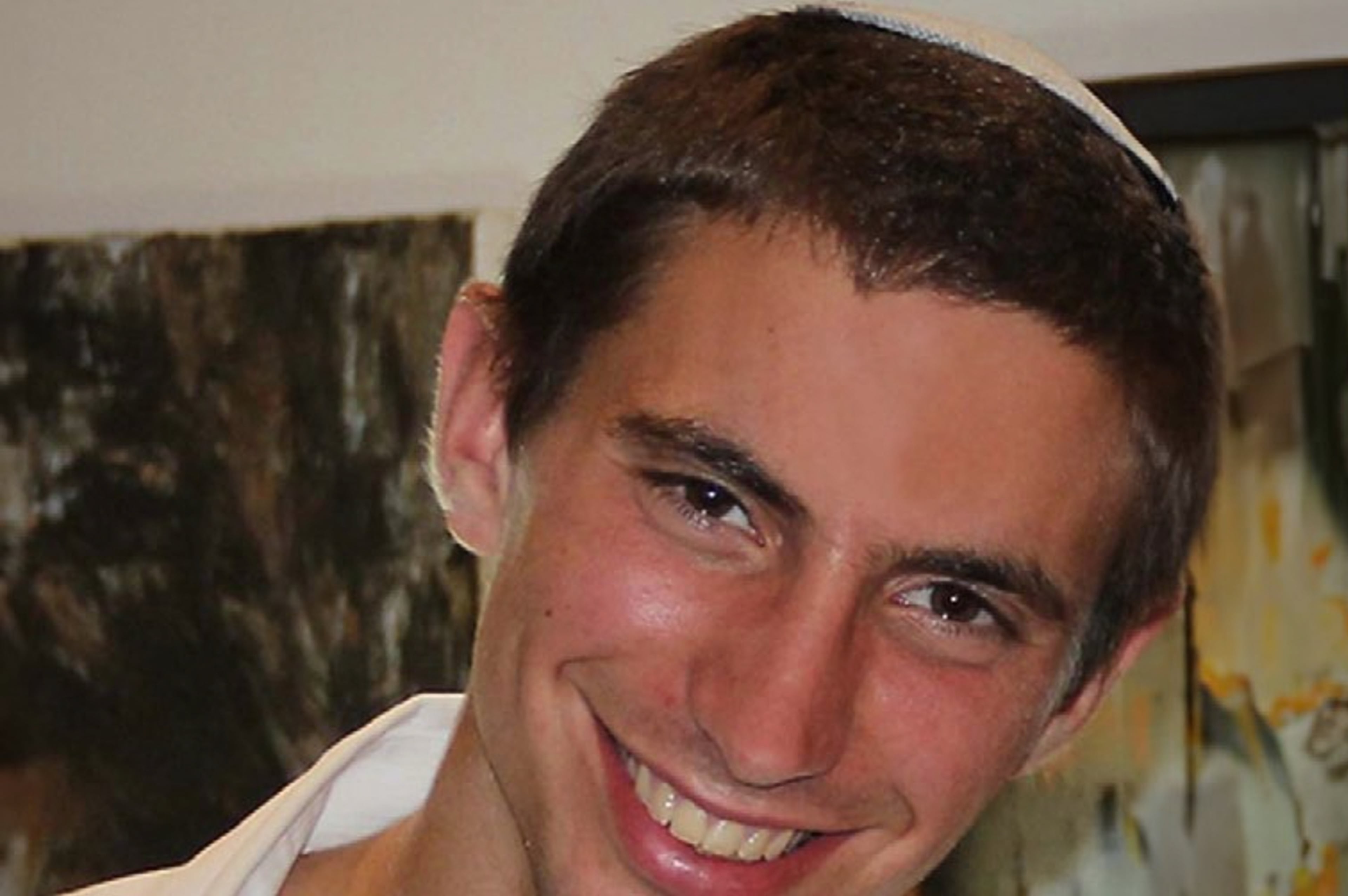Tens of thousands of Israelis attend funeral of soldier whose remains were held in Gaza for 11 years

KFAR SABA, Israel (AP) — Tens of thousands of people gathered in central Israel on Tuesday for the funeral of an Israeli soldier whose body had been held hostage in Gaza for 11 years, overflowing from the cemetery and blocking surrounding streets as crowds stood somberly with Israeli flags.
The burial of Lt. Hadar Goldin was a moment of closure for his family, who have waged a very public campaign to bring his remains home.
Hamas returned his remains on Sunday. The bodies of four hostages taken in the Hamas-led attack on Oct. 7, 2023, which sparked the current war, are still in Gaza.
The 23-year-old Goldin was killed two hours after a ceasefire took effect in the 2014 war between Israel and Hamas. For years before the Oct. 7 attack, posters with the faces of Goldin and another soldier whose body was abducted in 2014, Oron Shaul, stared down from intersections as their families campaigned for the return of their bodies.
Israel’s military long ago determined that he had been killed, based on evidence found in the tunnel where his body was taken, including a blood-soaked shirt and prayer fringes. His were the only Israeli remains left in Gaza before the current war between Israel and Hamas.
Family recalls many disappointments in 11-year saga
After Goldin’s body was identified, his parents noted the “many disappointments” in their efforts over the years and said that Israel’s military and “not anyone else” had brought home their son, in apparent criticism of Prime Minister Benjamin Netanyahu.
Netanyahu told the weekly Cabinet meeting that holding the body for so long caused “great agony of his family, which will now be able to give him a Jewish burial.” Israel recovered Shaul's remains earlier this year.
Leah Goldin told The Associated Press earlier this year that recovering her son’s body is part of the social contract between Israel and its citizens, who are required by law to serve in the military.
“Hadar is a soldier who went into combat and they abandoned him, and they destroyed his humanitarian rights and ours as well,” Goldin said. She said that her family often felt alone in their struggle to bring Hadar, an artist with a talent for drawing who had just become engaged, home for burial.
Goldin's capture was followed by a deadly effort to recover him
Dozens of Palestinians were killed in Israel's initial efforts to recover Goldin, in what Palestinian witnesses described as heavy and indiscriminate shelling.
Fearing a soldier had fallen into enemy hands, Israel invoked its “Hannibal” directive, a protocol that allowed the heavy use of force to prevent the capture of a comrade, and Israeli forces attacked a neighborhood on the outskirts of the southern Gaza city of Rafah with artillery fire, tanks shells and airstrikes, killing over 110 Palestinians.
Palestinian residents described a terrifying ordeal as they fled their homes and searched for cover amid heavy shelling of the area. Human rights groups identified 121 people killed and accused Israel of committing war crimes by allegedly using disproportionate or indiscriminate force and failing to distinguish between civilians and combatants.
The Hannibal directive was canceled by the military in 2016 following heavy criticism. In 2017, the military introduced a revised version.
In the 2014 war, over 2,200 Palestinians were killed, including hundreds of civilians, and widespread damage was inflicted on Gaza’s infrastructure. Another 73 people were killed on the Israeli side during 50 days of fighting.
__
Lidman reported from Tel Aviv, Israel.

